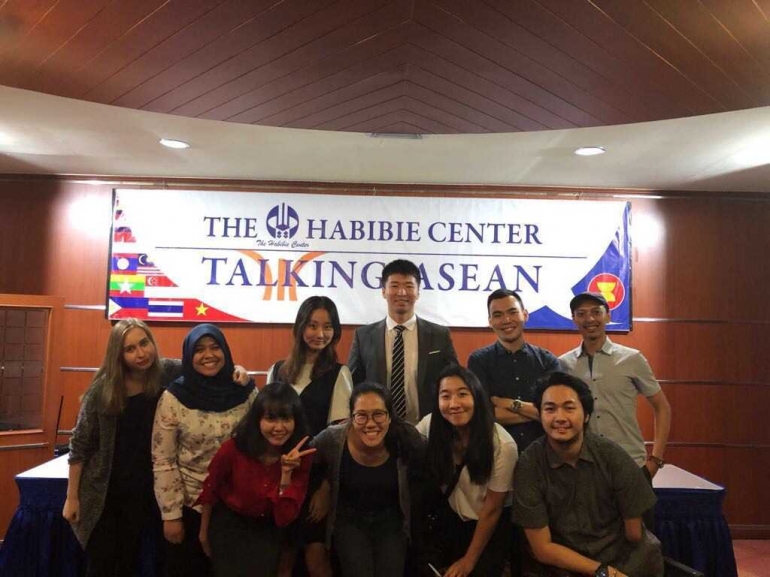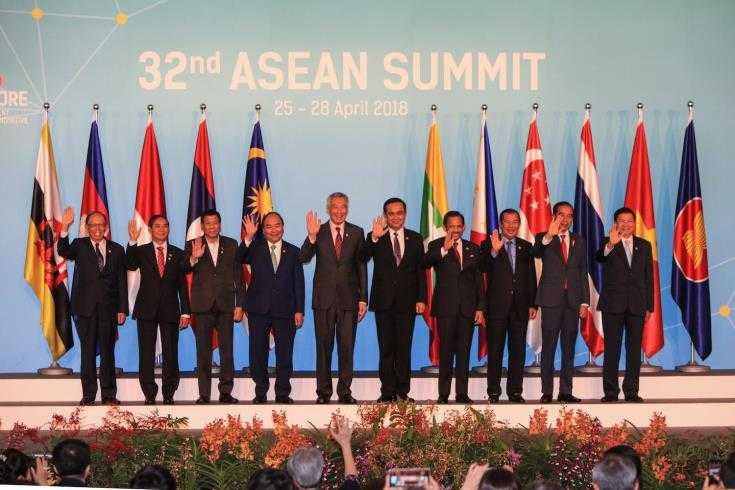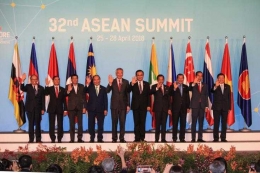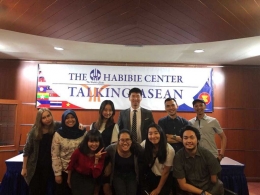Jakarta, 7 June 2018 -- Regarding the 32ndASEAN Summit that was held in Singapore on 28 April 2018, The Habibie Center (THC) conducted a Talking ASEAN dialogue entitled "Reflections on the 32nd ASEAN Summit".
ASEAN Foundation involved in the dialogue as participants. The dialogue aims to discuss about the main outcomes of the 32ndASEAN Summit, the Singapore's achievements in their chairmanship to date, the challenges of ASEAN at large in 2018, and possible recommendations for Singapore regarding its current ASEAN Chairmanship[1].
The dialogue was opened by Dr. Alexander C. Chandra as the Associate Fellow in THC. Two issues he considered need to be highlighted in the 32ndASEAN Summit are external relations of ASEAN and ASEAN Smart Cities Network (ASCN).
In relation to ASCN, he stated that there is no clear definition yet about the smart city in the concept note. In addition, the selection of the pilot cities bring the issue of inclusiveness because the less developed cities are not included as the pilot cities.
The dialogue continued by the explanation from Mr. Jamil Maidan Flores, a foreign policy observer. The ASEAN Centrality in the notion of Indo-Pacific is one of the issues in his presentation.
He mentioned that the crucial issue in the ASEAN Centrality is that China dictating the negotiation and they are not interested in legally binding negotiation. "To maintain the centrality, ASEAN needs to diplomatically challenge China", he stated.
The last speaker is Dra. Evi Fitriani. M.A., Ph.D., which is the head of Miriam Budiardjo Resource Center in Universitas Indonesia. In the beginning of her presentation, she explained about how ASEAN has survived for more than 50 years, and this cannot be taken for granted.
She also explained about how Summit is not only a political platform, but also a social and cultural platforms. In Asia, the diplomacy, meeting of minds, and eye-contact are important to bind a commitment, bind an agreement, and build trust.
Dr. Evi continued by elaborating about Singapore chairmanship in the Summit and how the main outcomes of the Summit relate to the chairmanship. Regarding the ASEAN Smart Cities, Dr. Evi mentioned, "...not only city, but SMART cities. Singapore is a city state. For them, this is their life and future. But, can other ASEAN countries keep up with their standards?".
She emphasized that the national and regional interests need to be balanced. Another outcome from the 32ndASEAN Summit is the informal and formal employment. It is interesting because actually it is not an issue in Singapore. However, the issue came up, so it needs to be appreciated. At the end of her presentation, Dr. Evi mentioned that ASEAN needs to help small power countries so their interests can be taken into account.
The dialogue was enclosed by the Q&A session, led by A. Ibrahim Almuttaqi, the Head of ASEAN Studies Program in THC, as the moderator. In this session, it was mentioned that the next ASEAN Summit needs to put ASEAN Vision 2025 on central topic. The Summit also needs to focus on people to people connection. For the better chairmanship in the Summit, ASEAN can learn from EU that uses triad. It means, the chairmanship is the country leaders from previous year, this year, and next year.
[1] According to the Press Release from The Habibie Center
Writer: Annisa M. (AFOSP Intern 2018 )

Follow Instagram @kompasianacom juga Tiktok @kompasiana biar nggak ketinggalan event seru komunitas dan tips dapat cuan dari Kompasiana
Baca juga cerita inspiratif langsung dari smartphone kamu dengan bergabung di WhatsApp Channel Kompasiana di SINI









